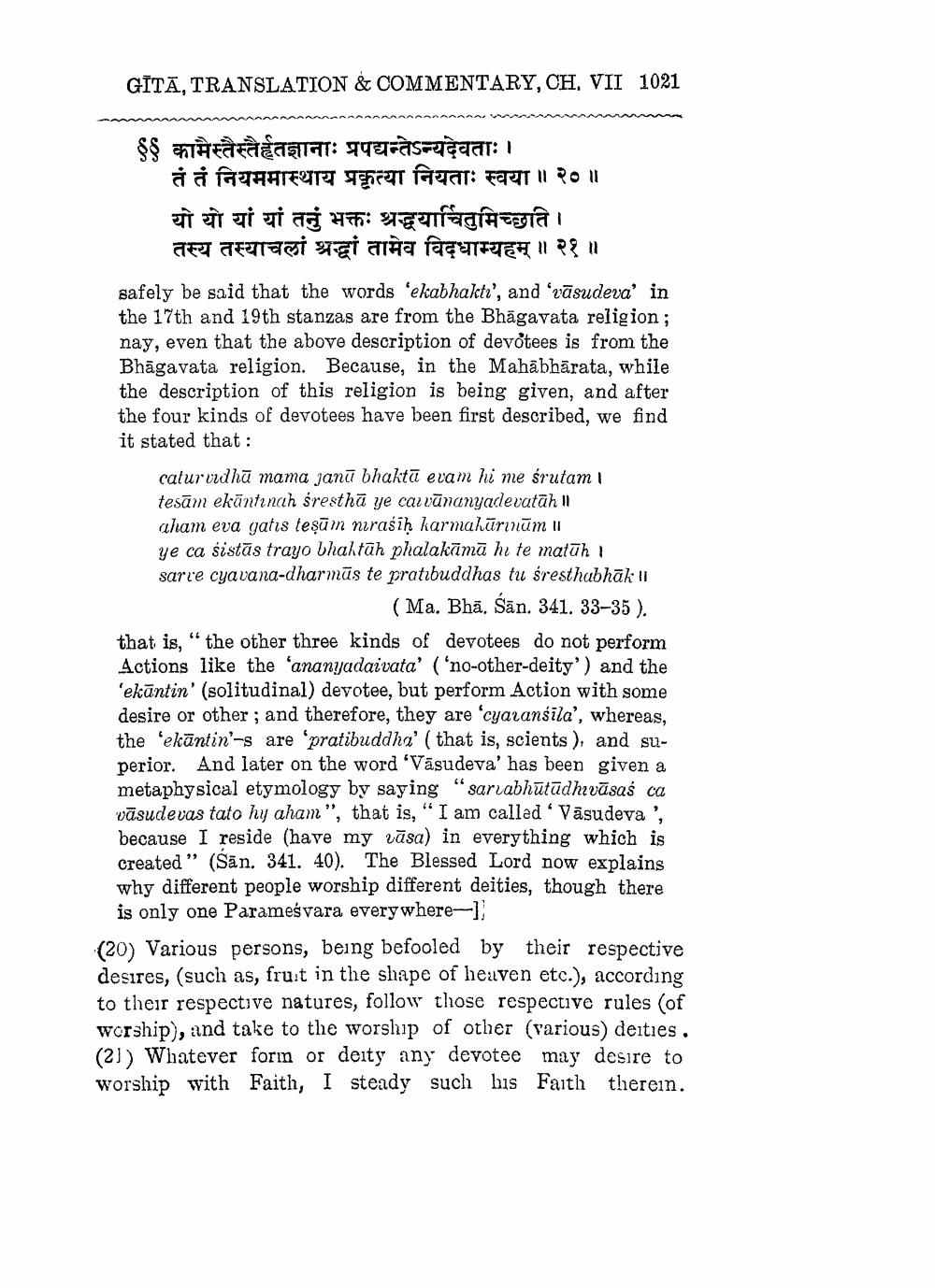________________
GITĀ, TRANSLATION & COMMENTARY, CH, VII 1021
६ कामैस्तैस्तैर्हतज्ञानाः प्रपद्यन्तेऽन्यदेवताः।
तं तं नियममास्थाय प्रकृत्या नियताः स्वया ॥२०॥ यो यो यां यां तनुं भक्तः श्रद्धयार्चितुमिच्छति ।
तस्य तस्याचलां श्रद्धां तामेव विदधाम्यहम् ॥ २१॥ safely be said that the words 'ekabhaktı', and 'vāsudeva' in the 17th and 19th stanzas are from the Bhāgavata religion ; nay, even that the above description of devotees is from the Bhāgavata religion. Because, in the Mahābhārata, while the description of this religion is being given, and after the four kinds of devotees have been first described, we find it stated that:
catur urdhū mama janū bhaktā evam hi me śrutami tesām ekāntinah Śresthā ye canvūnanyadevatäh !! aham eva gatis teşūin nirasīḥ karmahūrınām i ye ca sistās trayo bhaktūh phalakāmā hi te matūh ! sarie cyavana-dharmās te pratibuddhas tu śresthubhāk 11
(Ma. Bhā. Šān. 341. 33–35). that is, "the other three kinds of devotees do not perform Actions like the 'ananyadaivata' ('no-other-deity') and the 'ekāntin' (solitudinal) devotee, but perform Action with some desire or other; and therefore, they are 'cyaransila', whereas, the 'ekāntin'-s are 'pratibuddha' (that is, scients), and superior. And later on the word 'Vāsudeva' has been given a metaphysical etymology by saying "sarvabhūtādhivāsas ca vāsudevas tato hy aham", that is, “ I am called ' Vāsudeva', because I reside (have my vāsa) in everything which is created" (Sān. 341. 40). The Blessed Lord now explains why different people worship different deities, though there
is only one Parameśvara everywhere(20) Various persons, being befooled by their respective desires, (such as, fruit in the shape of heaven etc.), according to their respective natures, follow those respective rules (of worship), and take to the worship of other (various) deities. (21) Whatever forın or deity any devotee may desire to worship with Faith, I steady such bis Faith therein.




